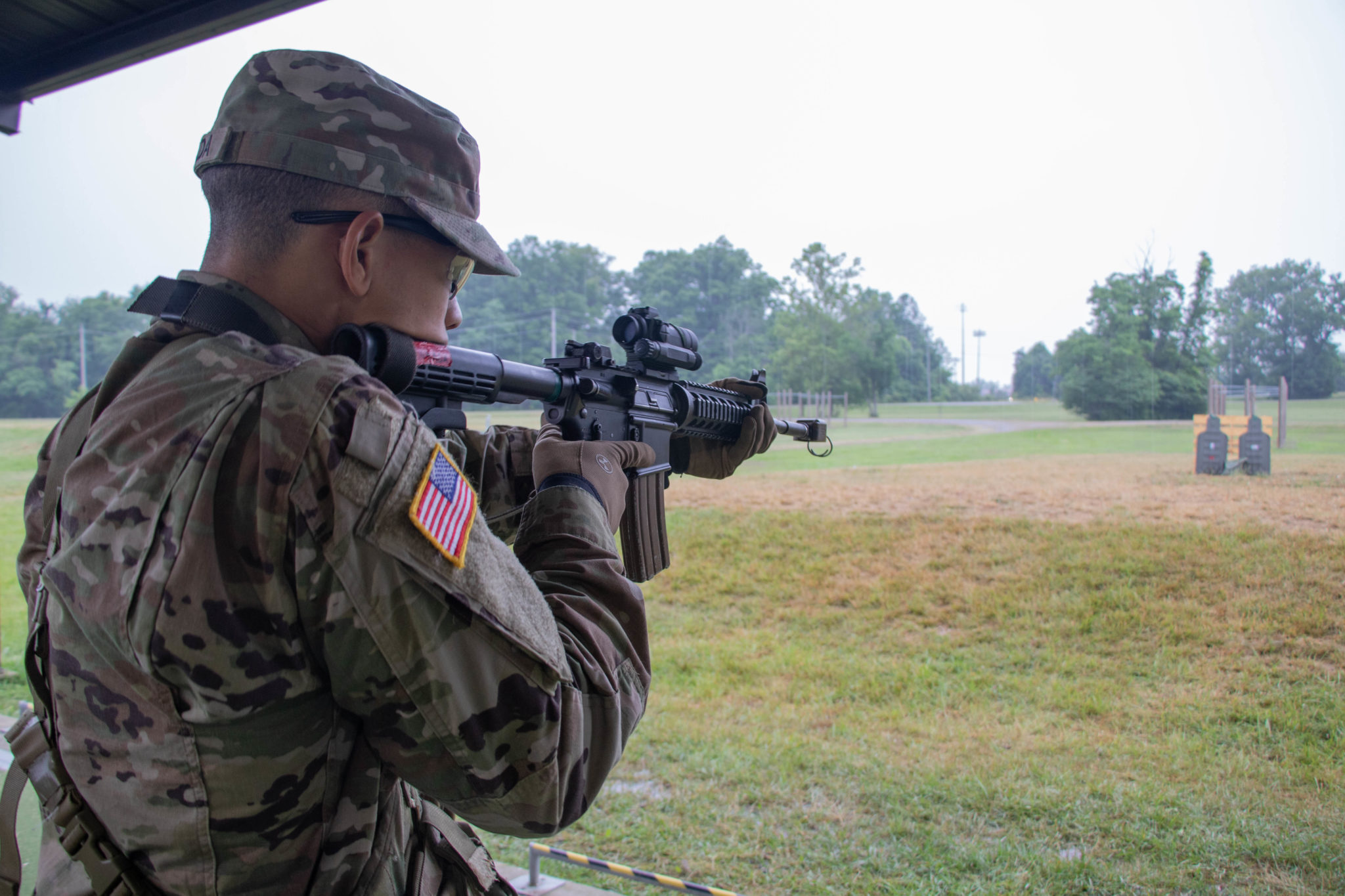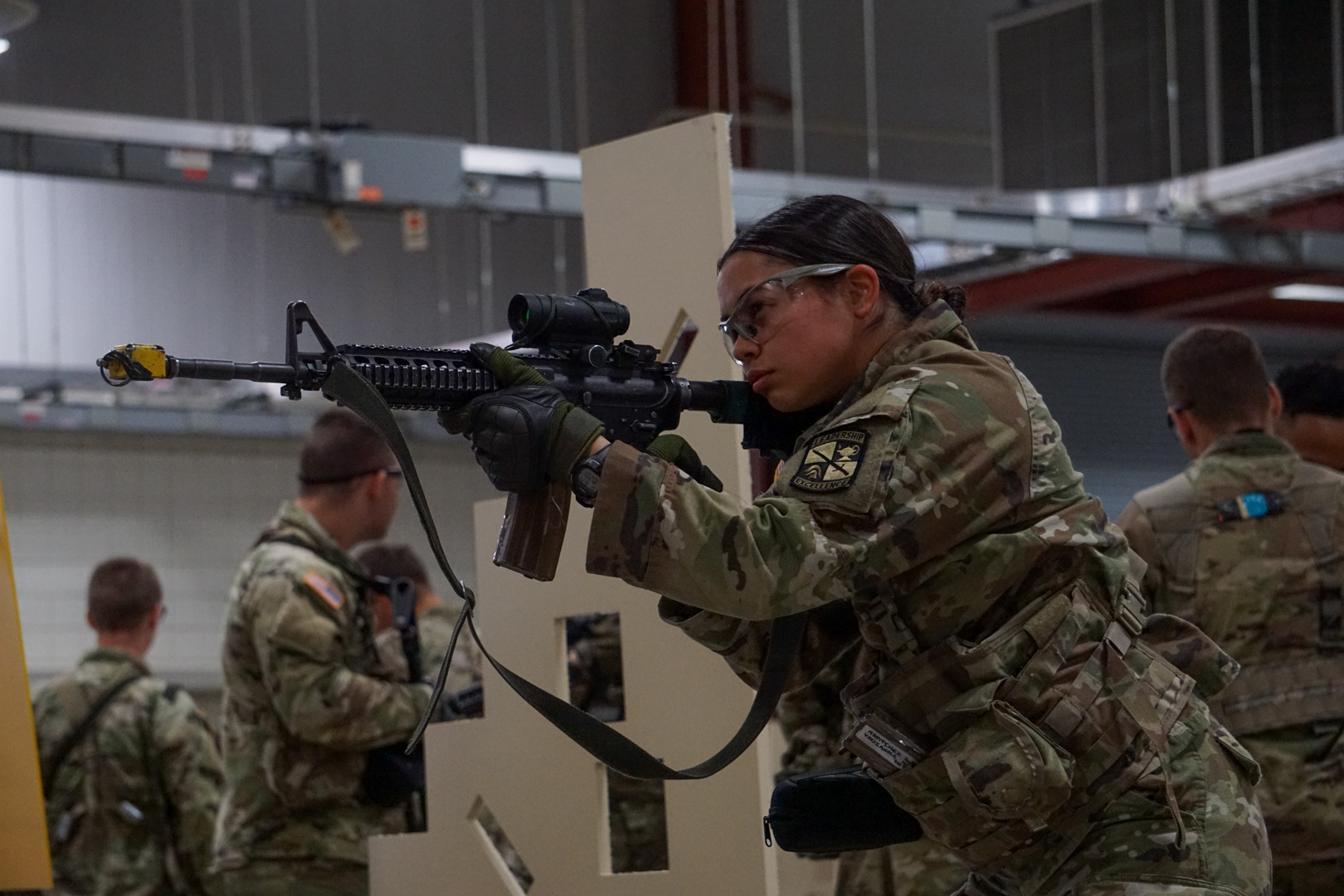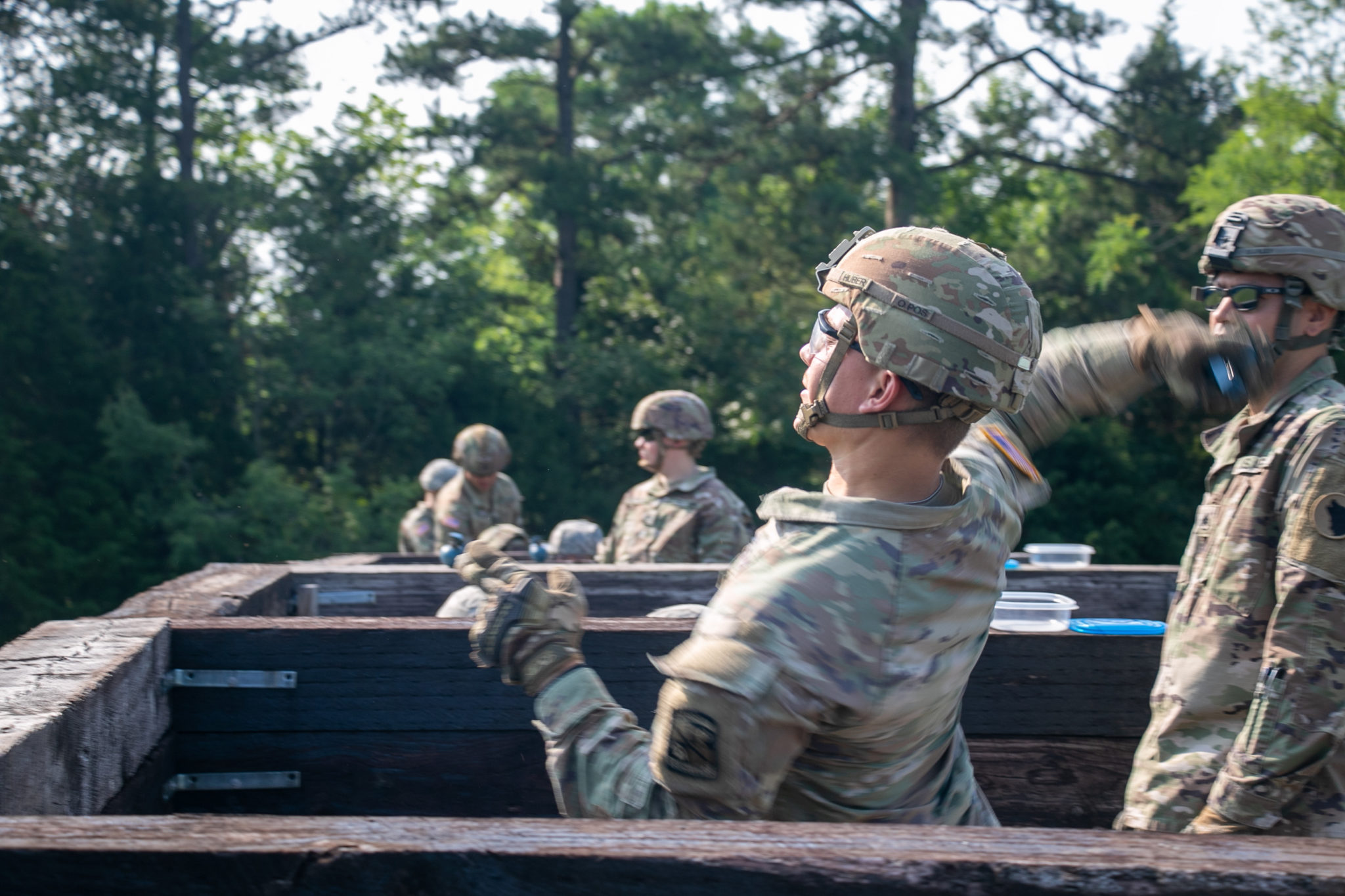By: Madison Thompson
FORT KNOX, Ky. – 7th Regiment, Advanced Camp, arrived at Assembly Area Baker, July 10, to complete their written land navigation test during Cadet Summer Training. Land navigation involves reading a physical map and being able to navigate terrain without technology, using compasses and protractors.
“The written test demonstrates their knowledge of terrain features, distance and direction on a map, the difference between grid north, magnetic north and true north,” said Capt. Ron Gooding.

7th Regiment, Advanced Camp, performs Land Navigation written test, July 10, during CST. Photo by: Madison Thompson
Cadets spent the morning studying and reviewing information before their exam. While waiting, Cadre answered questions and coached Cadets in improvised areas. Areas of hill that were washed away created the perfect training platform for Cadets to learn.
Cadre also provided tips and tricks to Cadets on how to remember key terminology. Examples like using their hands and fingers to represent draws and valleys. These skills are important to have for many different reasons.
“This training is really applicable to when you’re in tactical environments and knowing where you’re at, where you’re going and how to get there in the most efficient way,” said Cadet Savannah Miller, Columbus State University, Blissfield, Mich. “Knowing terrain features and knowing exactly where you’re at, it helps so much because if you don’t want to climb up a big hill when there’s a valley on the other side that you could’ve taken instead.”
Cadre also recognize the importance of land navigation without a GPS.

7th Regiment, Advanced Camp, performs Land Navigation written test, July 10, during CST. Cadet Jose Gutierrez, University of California- Berkeley, San Diego, Calif. Photo by: Madison Thompson
“As Soldiers of the United States Army, we have to traverse all kinds of terrain whether it be in the city or in the mountains of Afghanistan through the deserts. You have to get from one point to another without a GPS. We can never always trust on electronics,” explained Gooding. “Batteries will die in the event of a nuclear fallout. Electronics won’t work and you have to be able to rely on your compass and your ability to see terrain and say, ‘I know where that is on this map. I know how far I have to be,’ so you can calculate your distance going to that point.”
Cadets, using protractors and compasses, seemed confident in their abilities to perform well on the test.
“Land navigation is pretty straightforward. It only gets tricky if you lose your position. For me, if I lose my position, I have to think about it and go through the actual methods to find my position again,” said Cadet Jose Gutierrez, University of California-Berkeley, Sand Diego, Calif. “Other than that, if you start off and plot your coordinates, plot your points well and you know where you’re going before you start walking, it shouldn’t be that hard.”
Cadre offered the advice of practice, practice, practice. Though it is hard to practice land navigation on campus, Cadre urged Cadets to get out and demonstrate their skills. To navigate on paper is one thing, to go out and perform the navigation is another thing.
As Cadets press forward with their training, they offered some advice for future Cadets.

7th Regiment, Advanced Camp, performs Land Navigation written test, July 10, during CST. Photo by: Madison Thompson
“I would definitely tell them to already know everything. They don’t have to be masters at it or perfect at everything before they get here. But try to understand everything that you’re going to do … so you’re prepared … Just be mentally prepared for everything,” said Gutierrez.
“For Cadets who will be going through this training next year, I suggest that you come in here with the attitude of being very humble,” said Miller. “Being humbled with yourself and with the people around you.”
Cadet Summer Training brings 8,200 Cadets through Basic and Advanced Camp this summer on Fort Knox. These camps are designed to help challenge, grow and improve various skills and leadership qualities within the Cadets. If you think you have what it takes to be a Cadet or if you are interested in a job after college click the following link: https://my.goarmy.com/info/rotc1/index.jsp?iom=IP08-AUTO-R1NA-BR-XXX-XX-XXX-MO-XX-X-BRCMAC:IP08




